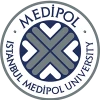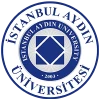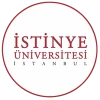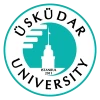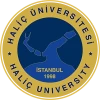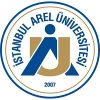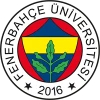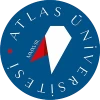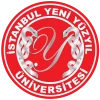Biochemistry, anatomy, pharmacology, haematology, physiology, physics, and pathology are typical course modules that students might anticipate studying.
Anesthesiology Speciality
Like other sciences, anaesthesia took a while to manifest itself in the form it is in now. The American dentist William Toms Green Morton is credited as being the first to use ether as a narcotic agent in surgery in 1846. Prior to this time, medical professionals used cannabis, opium, and other natural drugs to lessen pain. Then came alcohol as a painkiller, but the patient soon felt agony and regained consciousness as the alcohol's effects subsided. Some employed hypnosis, while others attempted to pass out until the procedure was over.
The Chinese employed needles to manage pain along with other ineffective techniques. On rare occasions, they would perform surgery on a patient who had to be restrained to the operating table until the procedure was complete; many of these operations were fatal for the patient.
Types of Anaesthesia
The four primary types of general anaesthesia used during surgery and other operations are:
Sedation
Local anaesthetic
Regional anaesthetic
General anaesthetic.
In some cases, the type of anaesthetic to be administered can be chosen by the patient.
The Importance of Anesthesiology Specialisation
Today's anaesthesia specialty goes beyond simply preventing or managing joint pain during surgery; an anesthesiologist also helps the patient get ready for the procedure, recommends any necessary tests, and creates an integrated pre-operative plan that addresses pre-operative medication management or avoidance in order to help the patient get ready for the procedure as effectively and unobtrusively as possible.
In addition to managing pain during surgery, the anesthesiologist is responsible for oxygenating the patient's body, observing breathing and circulation patterns, and overseeing other critical bodily functions.
After the procedure, an anesthesiologist continues to care for the patient in the recovery area or the intensive care unit until his condition in the operating room is stabilised.
Anesthesiology Speciality in Turkey
Students in Turkey study anesthesiology for two years, receiving instruction in the following subjects:
Human body physiology and anatomy
Illness sciences, infectious disease sciences, pharmacology, and other fundamental medical ideas.
Chemistry and physics fundamentals.
Turkish universities and institutions also offer fundamental university courses like Turkish and English language instruction, as well as anesthesiology fundamentals like equipment use, medication handling, and other topics. Additionally, at the end of each year, students participate in a practical training period.
Cost of Studying Anesthesiology in Turkey
In comparison to other places, the cost of studying anaesthesia in Turkey is considered average. In private institutions, they are typically between $7000 and $8,000 for two years, and if you have a scholarship, they will be less.
Career Pathways for Anaesthesiology Graduates in Turkey
Anesthesiologist Assistant
A qualified individual who works directly under a licenced anesthesiologist and assists in carrying out anaesthetic treatment plans is known as an anesthesiologist assistant. As a member of the anaesthetic care team, you will only help an anesthesiologist. Depending on the therapeutic environment, job descriptions and responsibilities may vary.
Anesthesia Technician
An anaesthetic technician is not a licenced physician or registered nurse. They are in charge of maintaining and caring for the anaesthetic equipment. They are expected to assist licenced anesthesiologists in their jobs. Depending on the individual's competence and training, anaesthesia technicians have a variety of responsibilities. The maintenance and service of equipment sometimes involve cleaning, sterilising, assembling, ordering, and documenting inspections.
Certified Anesthesia Technician
A technician who has passed the ASATT examination requirements is a certified anaesthetic technician. The team that cares for anaesthesia patients must include a qualified anaesthesia technician. Despite having a certification, a certified anaesthesia technician needs the direct supervision of a licenced anaesthesia practitioner in order to work.
Future Outlook on Anesthesiology
As always, anesthesiology has a bright future. The field of anesthesiology is broad and has significant effects on medicine. It is currently one of the highest-paying specialities in medicine and a career path that is expanding quickly. Due to the need for anesthesiologists in every surgical setting, there is a growing demand for qualified individuals in this industry.
Best Universities for Anesthesiology in Turkey
Istanbul University
Istanbul University was established in 1846, making it one of Turkey's first universities. It provides programmes in astronomy, mathematics, science, and other disciplines. It offers a wide variety of subject options and has a long history of producing experts who have made contributions to science and the arts.
Hacettepe University
As one of the top universities in Turkey today, Hacettepe University, founded in 1967, continues to make contributions to social development and universal values in the fields of science, technology, and the arts with its 16 faculties, 15 institutes, 4 vocational schools, 2 colleges, 1 conservatory, and 98 research and application centres.
Gazi University
Ankara, Turkey, serves as the primary location for Gazi University. Mustafa Kemal Atatürk founded it as the Gazi Teacher Training Institute in 1926. The university's goal is to educate people who can lead society and respect national, spiritual, cultural, and human values. They also aim to contribute to society's lifelong education and development process by producing knowledge through ground-breaking research, sharing it, and applying it in the real world.
Ege University
The third-largest city in Turkey is Izmir, which is also the location of Ege University, a public university. After being established in 1955, it was the first university in Izmir to start holding classes. Additionally, it is a well-known research institution. In addition to having a strong student union that provides access to several possibilities for students to get active in student life and develop outside of their academics, the institution uses a number of faculties to administer its courses and degree programmes.
Marmara University
One of Turkey's oldest educational institutions is Marmara University. Since 1982, Marmara University has swiftly grown and now has faculties, institutes, schools, vocational schools, and research-implementation centres that conduct educational-training and research activities.
Baskent University
In response to Turkey's demand for high-quality higher education institutions, Baskent University was founded in 1993 by its founding president, Prof. Dr. Mehmet Haberal, in collaboration with the "Turkish Foundation for Organ Transplantation and Burn Treatment" and the "Haberal Education Foundation." Since its founding, the university has made contributions to Turkey's educational and cultural development. It also makes contributions to its services, which centre primarily on teaching and research that adhere to international standards and competition requirements.
Dokuz Eylul University
Since its founding in 1982, Dokuz Eylül University (DEU) has a proud history of being a centre for education and research in Turkey, notably in the Aegean Region. With 70,081 students from all across Turkey and 1,366 foreign students studying there, it is one of the biggest universities in Turkey. The Turkish Higher Education Council (YÖK) chose Dokuz Eylül University as one of the top 20 pilot institutions in 2018.
Inonu University
İnönü University is a Turkish public university located in Malatya. One of the largest public universities in the east of Turkey is this one. İnönü University comprises six campuses, five institutes, fourteen faculties, nineteen research centres, and Technopolis, a cutting-edge scientific and technology park in Malatya. The Turgut Ozal Medical Center at İnönü University is one of the largest research and treatment facilities in the world. With more than 40 operating rooms, the hospital has over 1400 beds. It performs the function of a district hospital and also receives patients from nearby nations. It is one of the top three hospitals in the world for liver transplants and also offers services for burn injuries, kidney transplants, and bone marrow transplants.
Ankara University
The country's capital is where Ankara University is situated. The first university in Turkey provides 120 undergraduate courses, 110 graduate courses, and 40 vocational courses. According to the QS World University Rankings, it is now ranked 701+ and among the top 450 medical universities in the world.
Uludag University
Bursa Uludag University is a remarkable institution of higher learning that was founded in 1975 and is situated in one of Turkey's most dynamic regions. Despite its age, the university has grown significantly since opening its doors.
The university takes pride in being one of Turkey's most cutting-edge public universities. The university has seen some of the quickest growth in Turkey's higher education sector over the past ten years because of the annual opening of new programmes ranging from graduate studies to vocational training. The institution accepts students from all around the world thanks to its top-notch academic programmes, diverse academic staff, and relatively reasonable tuition rates.
Firat University
Fırat University, also known as Fýrat Üniversity, is a public institution of higher learning in Turkey. The university was founded in 1975. With about 24,000 concurrent students, it is classified as a big university. Over 1100 professionals make up the teaching faculty. It contains sixteen faculties, four institutes, nine vocational schools, and numerous research facilities.
Dicle University
Turkey's Diyarbakir is home to Dicle University. It is one of Turkey's oldest and largest higher education institutions, located in Southeast Anatolia. It was founded in 1962 and currently enrols over 18,000 students.
Ondokuz Mayis University
Samsun, Turkey's Ondokuz Mayis University, is a renowned public university. The university was established in 1975. In the beginning, it was a Turkish institution of higher learning. Every year, Ondokuz Mayis University produces hundreds of top-tier researchers and works tirelessly to advance human growth and development. Numerous accolades for innovation and research have been given to the university. It is also renowned for its innovative teaching techniques and academic excellence. The university has consistently displayed excellence in research and innovation. It has taken up a number of initiatives aimed at improving society.
Mersin University
Since its founding, the number of faculties at Mersin University has expanded to 16, along with the number of colleges, vocational schools, institutions, and research centres it now has (11 for vocational education, 5 for institutes, and 34 for research). Mersin University is also regarded as one of the best universities in Turkey.
Suleyman Demirel University
Suleyman Demirel University (SDU) is a private higher education institution in the Eurasian republic of Kazakhstan. It is located 20 kilometres from the heart of Almaty city in the mountain town of Kaskelen. In 1996, the university was established as the result of a partnership between Kazakhstan and Turkey. The Business School, Engineering and Natural Sciences, Law and Social Sciences, and Education and Humanities are the present four faculties at SDU. With 81% of its degree programmes taught in English, 16% in Kazakh, and 3% in Russian, SDU has a trilingual educational system.
Adnan Menderes University
Adnan Menderes University, a non-profit public university founded in 1992, is situated in the sizable town of Aydin. Adnan Menderes University (ADU) provides classes and programmes that lead to degrees in a variety of fields of study, including pre-bachelor degrees (such as certificates, diplomas, or associate or foundation degrees), bachelor degrees, master degrees, and doctorate degrees.
Celal Bayar University
Located in the Turkish town of Manisa, the Manisa Celal Bayar Institution (MCBU) is a public research university. This esteemed university is comprised of 14 faculties, 3 schools, and 15 vocational schools. There are more than 90 graduate degrees and more than 70 undergraduate degrees offered.
Yeditepe University
Yeditepe University was established in Atasehir, Istanbul, in 1996. This university is ranked 2972nd globally and 38th in Turkey. The languages of Turkish, English, French, and German are taught at the university.
Maltepe University
Private Maltepe University is a university in Istanbul, Turkey's Maltepe neighbourhood. The "Istanbul Marmara Education Foundation" founded it on July 9, 1997. The university's job is to guide students in accordance with the education they receive and their expectations for life as they transition into the business world and to make sure they become accustomed to the working world. This is in addition to giving you good academic equipment for your school desks.
Kahramanmaras Sutcu Imam University
Kahramanmaraş Sütçüimam University (KSU), a Turkish public university, was established in 1992. The university's academic activities are carried out on the campus, in Avsar Campus, Bahceli evler, Karacasu.
93 programmes in higher vocational schools, 45 departments in 10 faculties, including the second education programme, 12 departments in higher vocational schools, 17 departments in the Institute of Natural Sciences, 9 departments in the Institute of Social Sciences, and 6 departments subordinate to the Rectorate make up the university's total of 170 departments and programmes.
Mugla University
Mugla, Turkey, is home to Mugla Sıtkı Kocman University. Since its founding in 1975, it has grown to encompass 18 undergraduate colleges, 4 graduate colleges, 5 schools, 13 vocational schools, and 35 research and application centres. In terms of enrollment, it is regarded as a huge institution because there are more than 40,000 students there. Along with providing practical training, the institute also supports research and offers courses in the social, natural, and pedagogical sciences, as well as the arts and humanities.
Acibadem University
In 2007, Acibadem University was founded with the help of the Health Foundation. This university's primary goal is to gather all aspects of medicine and health under one roof. In terms of private universities in Istanbul, it was ranked 123rd in Turkey and 6784th overall. Therefore, Acibadem is among the greatest medical universities in Turkey you'll ever find if you wish to pursue a profession in the medical industry.
Istanbul Medipol University
The university's innovative curriculum prepares students with advanced degrees and those who want to promote science and technology. It is one of the most prestigious private universities in Turkey and well-known on a national and worldwide level as a result of its higher degree of accreditation. Every learner now has access to a cutting-edge learning setting with top-notch technology.
Ufuk University
Turkey's capital city of Ankara is home to Ufuk University. The Turkish Foundation of Traffic Accidents founded the university in 1999. The university is divided into faculties for medicine, law, education, science, literature, economics, administrative, and social sciences.
Koc University
The stunning campus, comprehensive academic assistance, and well-stocked labs at Turkey's Koc University have made it popular among students, both local and international. This institution was founded in 1992 and is located in Istanbul. It is now ranked 13th in Turkey and 1433rd globally, and it only provides English-language courses.
Cukurova University
With its cutting-edge facilities and sophisticated infrastructure, this university is among the best in the nation for meeting the demands of both students and staff. Çukurova University, which was founded in 1973, is ranked among the top 500 universities worldwide and among the top five in Turkey.
The core academic institutes of Çukurova University are the Adana Faculty of Agriculture, founded in 1969 under Ankara University, and the Çukurova Faculty of Medicine, founded in 1972 under Erzurum Atatürk University. There are now 16 faculties at the university, in addition to 5 academies, 13 vocational academies, 1 state conservatory, 3 institutes, and 25 research and application centres. Initially, there were only two faculties.
Gelişim University
Istanbul Gelisim University is considered to be a university that is constantly expanding toward its major goal of becoming a significant global university. It is one of the rivals of private institutions in Turkey. It aims to implement a teaching approach that places a strong emphasis on student agency.
Üsküdar University
Uskudar University is the first institution of higher learning in the country to concentrate on the study and research of behavioural sciences. On the other hand, the institution offers a variety of degree programmes to its students, including engineering and communication studies. Approximately 17,000 students are currently enrolled at the university, along with a sizable number of international students.
Yeni Yüzyıl University
The National Home for Education and Health established Yeni Yüzyıl University in 2009. The university is responsible for the academic and technical education of its students as well as for supporting studies and research. This is why the university, in collaboration with the owners of sizable corporations like public institutions, the private sector, and non-governmental organisations, provides comprehensive education in a variety of fields. It comprises 25 professional programmes, 23 departments, and 10 faculties. Except for the English and Literature Departments and the Nutrition and Dietetics Section, all classes are taught in Turkish.
Tokat Gaziosmanpasa University
Tokat Gaziosmanpaşa University develops knowledge and technology, promotes dynamism, entrepreneurship, and involvement, and supports the region's social, cultural, and economic aspects. By the 2019–2020 academic year, the university had 32859 students, 1430 academic personnel, and 1015 administrative staff.
"A transparent, participatory, entrepreneurial, knowledge- and technology-producing institution, contributing to the economic, social, and cultural framework of the region," is how the university describes itself. More than a million seedlings will be grown in an automated greenhouse system as part of the agricultural faculty's initiatives, and in June 2019, 10,000 grape vine seedlings will be distributed to nearby farmers.
Medicine Subfields in Turkey
Anatomy and Physiology
Audiology
Bioethics/Medical Ethics
Biomedical Engineering
Cardiology
Clinical Psychology
Cosmetology
Critical Care Nursing
Dentistry
Dermatology
Epidemiology
Family Medicine
Forensic Science
Gastroenterology and Hepatology
Gerontology
Health Science
Healthcare Management (MHA)
Immunology
Medical Physics
Neurosurgery
Nursing
Obstetrics and Gynecology (OB-GYN)
Occupational Therapy
Oncology and Cancer Research
Ophthalmology
Optometry
Orthodontics
Paramedicine and Emergency Medicine
Pathology
Pediatrics
Pharmacology
Pharmacy
Physical Therapy
Plastic Surgery
Psychiatry
Public Health
Radiation Therapy
Radiology and Nuclear Medicine
Respiratory Therapy
Social Work
Sonography and Ultrasound
Sports / Exercise Science
Sports Medicine
Surgery
Toxicolog
Urology
Veterinary
Virology



